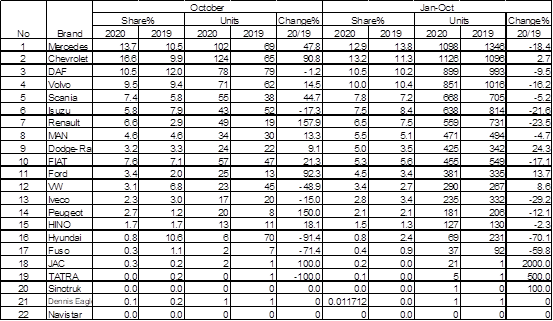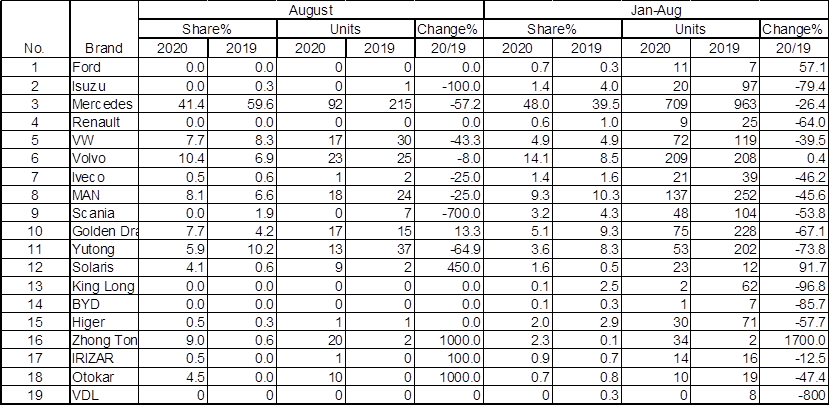Monthly Review October 2020
November 19, 2020
Preface – Economic Climate
The Israeli economy is an advanced economy that belongs to the OECD organization. The GDP per capita is $ 41,884 and the growth rate in 2010-2019 was the average annual growth rate of 3.3% per year. At the beginning of the Corona crisis, the debt-to-GDP ratio was 60% and was one of the lowest in the Western world. The government deficit was 3.7% and the unemployment rate was 3.4%.
The Corona crisis has affected the Israeli economy significantly, as have other economies in the world. The deficit in 2020 is expected to reach 14% from the GDP and the debt-to-GDP ratio will grow to 76% by the end of 2020 and 78% by the end of 2021. The unemployment rate rose to 5% but the unofficial unemployment rate climbed to about 19% with the second lockdown in September. Along with the economic crisis in Israel, there is also a political complexity that makes it difficult for the government to pass a budget and formulate a coherent economic policy. On the other hand, from a monetary point of view, the crisis is being managed professionally by the Bank of Israel, which is monitoring the local credit market and solving liquidity problems through plans to purchase bonds and keep interest rates low.
At this point, Israel is coming out of the second lockdown and economic indicators show a slow return to routine. Purchases of products and services in Israel that decreased during the second lockdown phase are gradually rising to their level before it begins, and there are reports of an increase in the purchase of apartments and cars. The rating agency S&P has at this stage left Israel's credit rating at the same level, and does not anticipate significant problems at this stage, certainly not in an international comparison. The local currency also maintains its stability relative to the Dollar and Euro reference currencies and there are no sharp movements. The domestic capital market has also been stable in the recent months.
Statistical Profile
Society
Population: 9.254 Million
Economy
GDP per capita: $ 41,884
Inflation: -0.69% Annual Growth Rate Index based on 2015=100
Current Account Balance (Q4 2019): 3.01% of GDP
Trade in Goods and Services: $ 47.2 billion
Finance
US Dollar Exchange rate: NIS 3.39
Euro Exchange rate: NIS 4.00
Long-term interest rates: 0.76% Per Annum
Short-term interest rates: 0.03% Per Annum
Government
Debt to GDP ratio (Q2 2020): 70.5%
Deficit to GDP: 10.1%
Motorization
Level of Motorization (Q4 2019): 394 Vehicles/1,000 Residence
Innovation and Technology
Gross Domestic Spending on R&D (2018): 4.94% of GDP
Environment
CO2 Emissions (2017): 7.3 Tonnes Per Capita
Jobs
Employment Rate (Q3 2020): 66.15% of Working Age Population
Official Unemployment Rate (September 2020): 4.69% of Labour Force
Unofficial Unemployment Rate (including non-paid absence due to Corona) (September 2020): 19%
New Cars and CV Registrations
Israel New Passenger Car Registration
Passenger car registration: -15.9% ten months into 2020; +4.12% in October
In October, the Israeli passenger car market registered an increase of 4.12% compared with October 2019, with 14,559 new registrations. From January 2020, the market dropped 15.9% - 195,086 units in 2020 compared with 232,077 last year.

New Passenger Cars Registration in Israel According to Brands

New CV above 3.5 ton Registration in Israel
Commercial Vehicles above 3.5 ton registration: -19.3% ten months into 2020; similar amount of registrations in October
In October, the Israeli market for CV above 3.5 ton registered a similar amount of registrations compared with October 2019, with 868 new registrations. From January 2020, the market dropped 19.3% - 10,271 units in 2020 compared with 12,729 last year.

New CV above 3.5 ton Registration in Israel According to Brands

New Bus Registration in Israel According to Brands

Israel's Auto and Auto-Tech industry
Knesset State Audit Committee Discusses Promoting Renewable Energies and Electric Cars
Two sessions of the Knesset Audit Committee were dedicated recently to discussing the promotion of renewable energies and electric vehicles. The committee discussed tax benefits and pricing of electric vehicles, and some decisions were forwarded to the taxing committee. The CEO of the I-via (Israeli Vehicle Importers Association(, Hezi Shayb, participated in the discussions and commented on the policy and the promotion of electric vehicles. Shayb reminded the committee members that less than 1,500 EVs were sold in Israel this year – less than 1% of the total new cars. The reasons for that, maintained Shayb, is that the government doesn't support the purchase, in contrast to OECD countries in which consumers receive benefits worth tens of thousands of Euros when purchasing electric cars. Shayb also mentioned that contrary to the belief that electric cars receive reduced purchasing tax of 10%, the tax in fact is 17% since an additional 7% is applied to the battery. He concluded by calling government officials to give personal example and drive EVs.
Arbe Launches New Radar Platform Supporting 2K Resolution
Arbe, an Israeli company, which is a leader in the development of Radar technology, is launching its new development platform for Radar systems to be used in ADAS and Autonomous vehicles. The platform includes the first Radar processing chip compatible with AEC-Q100 standard, supporting 2K resolution and over 100,000 identifications per frame. According to Arbe, more than 20 leading auto manufacturers and Tier-1 companies already purchased the platform, in order to use it as a base for their next generations Radar systems. The company added that their platform will comply with the new NCAP standards, due to take effect in 2022.
Delek Drilling to Co-operate with SNAM and Dan in the Development of NLG Technology for Buses
Delek Drilling, which is the leading Israeli energy partnership in the exploration, development, production and sale of natural gas and condensate, signed a memorandum with Italian energy company SNAM and Israeli public transportation company Dan, to jointly develop NLG (Natural Liquid Gas) technologies to be used in buses. The three companies will leverage Delek Drilling's partnership in Leviathan gas reservoir, SNAM's technical abilities and Dan's transportation array, in order to research and pilot NLG operated buses.
Tesla Chooses Israeli Start-Up Augmind to Prepare its Virtual Auto Seminar
Israeli start-up Augmind, developing innovative AR (Augmented Reality) simulations, was chosen by Tesla as the developer for its first virtual auto seminar in which Tesla models will be presented in VR (Virtual Reality). Augmind's technology combines VR with AR to create 3 dimensional representations that provides highly realistic VR experience.
Israeli Adasky's Round B raises 15M$
Israeli start-up Adasky raised 15M$ in round B, following 55M$ already raised in earlier rounds from Japanese corporation Kyocera and South-Korean auto parts manufacturer Sungwoo Hitech, among others. The company develops heat sensing systems for the car industry, using LWIR technology, and its leading product is the "Viper" sensor, designed to be used in ADAS systems and autonomous vehicles.
Soon: Autonomous Vehicle Use in Israel Will No Longer Be Defined as "Experimental"
According to Calcalist daily newspaper, the Israeli ministry of transportation intends to re-define the use of autonomous vehicles on Israeli roads, reduce the number of relevant rules and regulations, and thus hasten the use of this innovative technology. Re-defining autonomous driving as similar to normal driving will enable the cancelation of many restrictions, and will give Israel a competitive advantage in the field of autonomous driving.
Tomcar Negotiating a Plant in Dubai
Israeli All-Terrain vehicle manufacturer Tomcar is negotiating the establishment of a production factory in the United Emirates. The new plant will be a joint venture between the Israeli company, and two American companies – Comprime Solutions and Prince Manufacturing, both owned by American businessman Eric Prince. Tomcar recently signed a contract to supply ATV to the American Marine Corps, and production of the vehicles is due to begin soon in the USA and Mexico.
Innoviz Launches New Generation Product: InnovizTwo
Israeli company Innoviz, developer of Lidar sensors, announced its new generation product InnovizTwo. The company stated that the new sensor is 70% cheaper compared with the previous generation, and provides substantially upgraded performance. According to Innoviz, the sensor is highly suitable for autonomous vehicles level 2+, and in the future the upgrade to level 3 will be done using software update, with no additional hardware.
MediaTek Invests in VisIC Series E Round
Israeli company VisIC, a leader in the use of GaN technology for electric vehicles, completed a series E round with the participation of semi-conductor giant MediaTek. The money raised in this round will enable VisIC to expand its offerings in the growing market for electric vehicles. New products will be developed based on VisIC's D3GaN technology and its' innovative GaN transistor.





